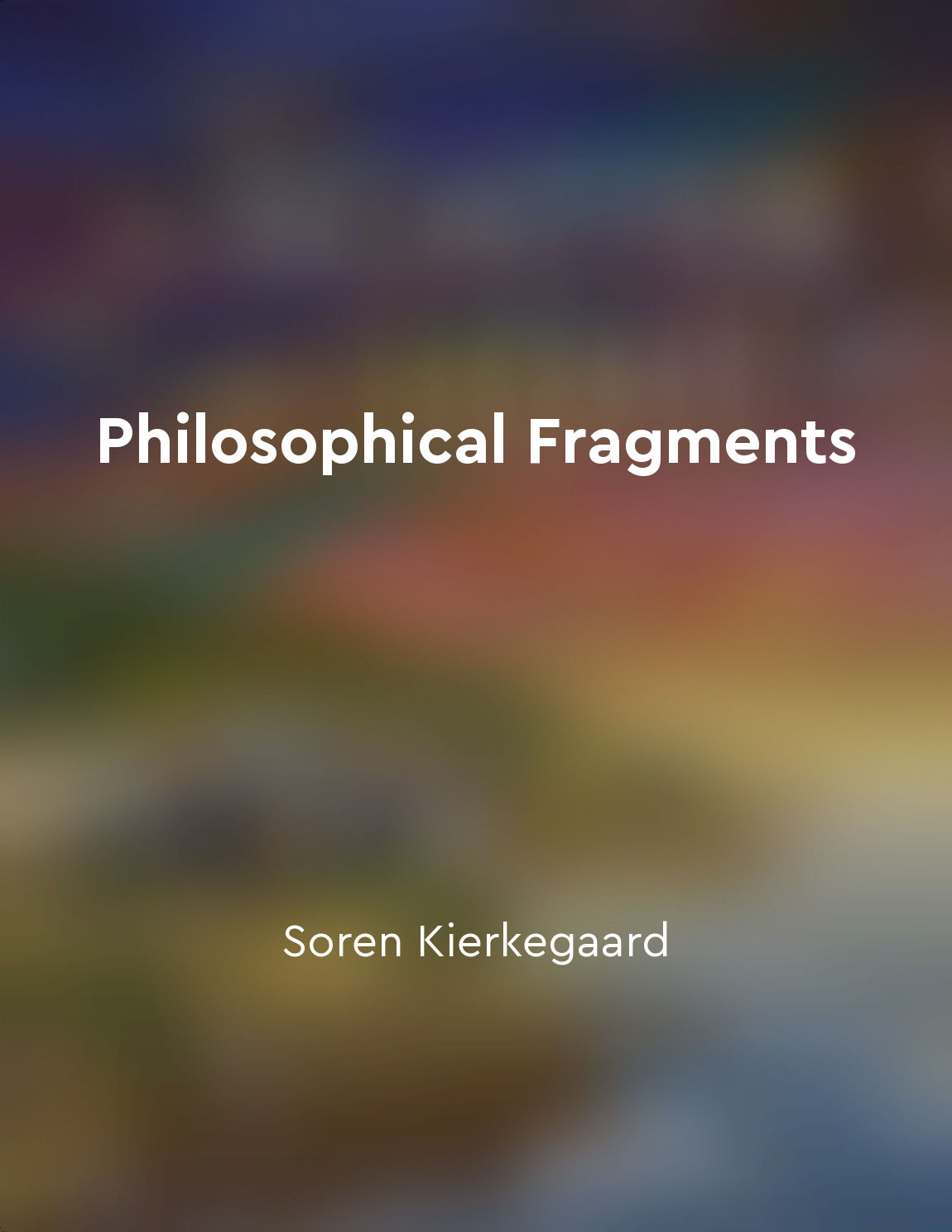Skepticism towards religious doctrines leads to truthseeking from "summary" of Why I am an Atheist by Bhagat Singh
The questioning of religious doctrines is not a simple act of rebellion or defiance; it is a sincere pursuit of truth. When one begins to doubt the teachings and beliefs that have been ingrained since childhood, it is not out of a desire to simply reject authority, but rather a quest for knowledge and understanding. Skepticism towards religious doctrines is a natural response to inconsistencies and irrationality within those teachings. By questioning religious dogma, one opens the door to a deeper exploration of the world around them. This doubt serves as a catalyst for seeking out alternative explanations and perspectives that may offer a more logical and coherent understanding of reality. It is through this process of questioning and seeking answers that one can arrive at a more informed and enlightened worldview. Religious doctrines often rely on blind faith and unquestioning obedience, discouraging critical thinking and independent inquiry. However, by adopting a skeptical attitude towards these teachings, individuals are able to engage in a more rigorous examination of their beliefs. This intellectual curiosity and skepticism are essential components of the truth-seeking process. In his exploration of atheism, Bhagat Singh exemplifies the importance of skepticism in uncovering the truth. He challenges the prevailing religious narratives of his time and encourages others to question the validity of these doctrines. Through his writings and activism, Singh demonstrates that it is only through skepticism and critical inquiry that one can truly uncover the underlying truths of the world.- Skepticism towards religious doctrines is not a rejection of spirituality or morality, but rather a pathway to deeper understanding and enlightenment. It is through this questioning and critical examination that individuals can arrive at a more profound appreciation of the complexities of existence. Bhagat Singh's journey towards atheism serves as a testament to the transformative power of skepticism in the pursuit of truth.
Similar Posts
Be open to feedback and constructive criticism
To truly grow and improve in any aspect of life, one must be willing to receive feedback and constructive criticism from others...
Karma plays a crucial role in life
Karma, a concept deeply rooted in Hindu philosophy, holds immense significance in our lives. It is believed that every action w...
Religious indoctrination is a form of child abuse
In his book, Richard Dawkins argues that religious indoctrination is a form of child abuse. He believes that children should no...

The pursuit of truth requires a willingness to challenge one's own assumptions and biases
In the pursuit of truth, one must be willing to confront and question one's own assumptions and biases. This is a crucial aspec...
Religious indoctrination is a form of child abuse
In his book, Richard Dawkins argues that religious indoctrination is a form of child abuse. He believes that children should no...
Atheists can uphold ethical principles
One of the most common misconceptions about atheism is that it is synonymous with immorality. Many people believe that without ...
Genetics can deepen our appreciation for the complexity of life
The study of genetics has the power to open our eyes to the intricate web of life that surrounds us. By delving into the molecu...

